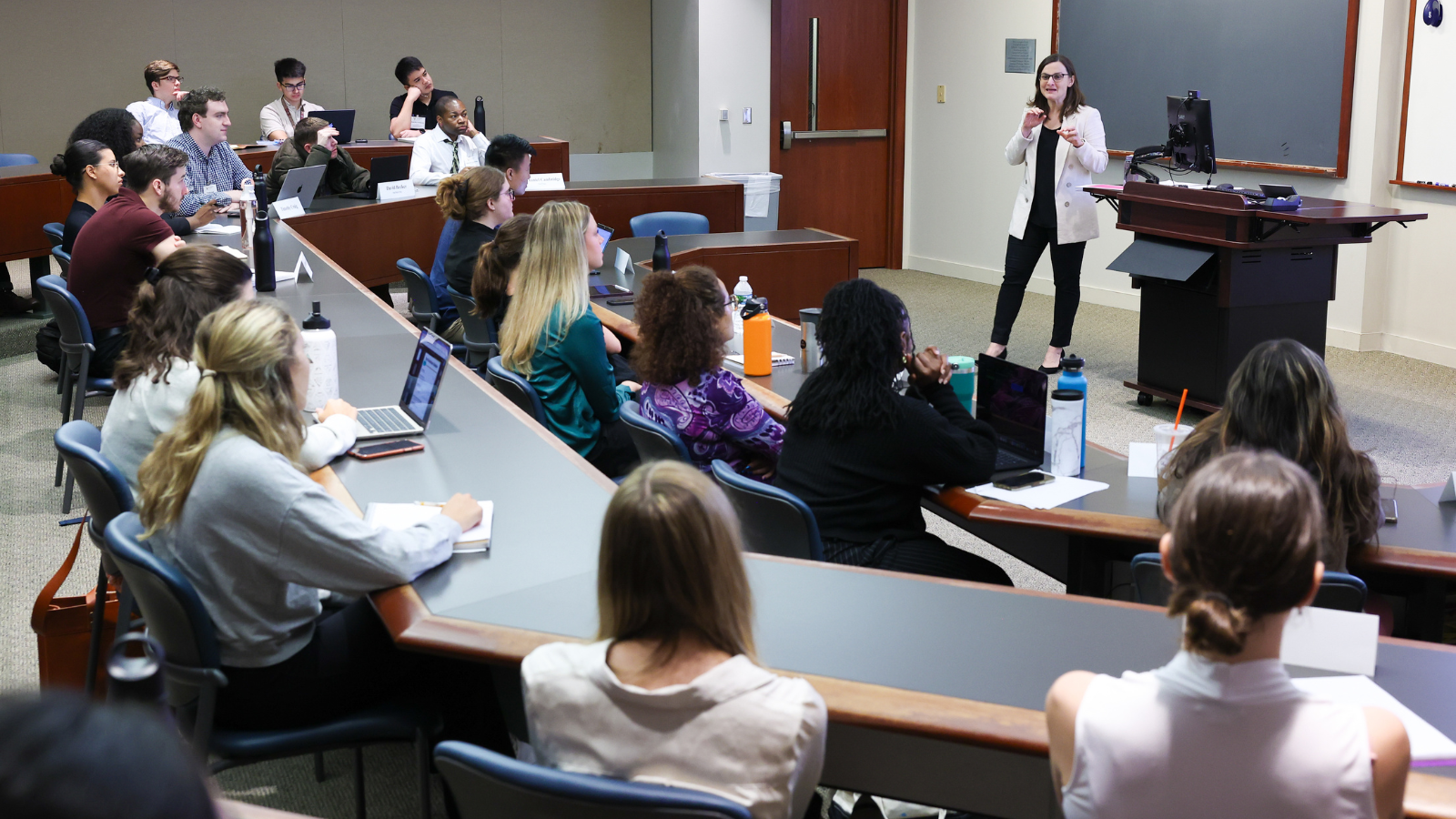The Public Interest Legislation and Policy Practicum – designed, created, and taught by Beth Cruz, Assistant Dean and Martha Craig Daughtrey Director for Public Interest – launched in spring 2024. With Tennessee’s legislative session beginning on January 9, students hit the ground running to provide strong legal analysis of existing law and proposed bills to community partners by early February.
Student teams worked on live legislative projects and provided legal analysis, policy analysis, and legislative fact sheets to support the work of community partners in the areas of education law and voting rights restoration.
 The Practicum’s in-class time provided opportunities for learning from community leaders. Students discussed the role of journalism in policy change with Meribah Knight, the journalist behind the New York Times’ Serial Podcast “The Kids of Rutherford County.” Dawn Harrington, Executive Director of Free Hearts, and Rafia Muhammad-McCormick, founder of Mothers Over Murder, spoke with the practicum about centering affected populations in advocacy. Students engaged with issues of institutional, local, and state-wide policy change during a visit to Davidson County Juvenile Court and in conversation with Judge Sheila Calloway.
The Practicum’s in-class time provided opportunities for learning from community leaders. Students discussed the role of journalism in policy change with Meribah Knight, the journalist behind the New York Times’ Serial Podcast “The Kids of Rutherford County.” Dawn Harrington, Executive Director of Free Hearts, and Rafia Muhammad-McCormick, founder of Mothers Over Murder, spoke with the practicum about centering affected populations in advocacy. Students engaged with issues of institutional, local, and state-wide policy change during a visit to Davidson County Juvenile Court and in conversation with Judge Sheila Calloway.
Throughout the semester, students further developed their legislation and policymaking skills by completing a power analysis, writing thoughtful op-ed pieces, conducting legislative visits, and participating in policy negotiation simulations. The semester culminated with mock legislative hearings in which each student delivered testimony before visiting “legislators.”
“The Public Interest Legislation & Policy Practicum was the perfect culmination to my education at Vanderbilt Law School. Under Dean Cruz’s thoughtful instruction, our class gained practical skills that we used to support our clients’ valuable legislative initiatives, and we deepened our understanding of public interest work,” said Patience Tyne (JD ’24).
“This class allowed us to engage with the Tennessee state legislative process and serve real clients while honing advocacy skills through research, negotiations, strategic framing, and mock legislative testimony,” Tyne added.
“My team of three supported The Education Trust – Tennessee, a non-partisan advocacy organization that seeks to improve public education through research, policymaker engagement, and advocacy capacity building. Our work supported a bill to reform school discipline for young children. Each year, Tennessee suspends thousands of pre-K and kindergarten students, often without alternative education options, and these early suspensions correlate years later with high rates of incarceration. Federal law provides some due process guidelines, but the state’s current legal framework is confusing for educators as well as for students. My team created a research memo and policy fact sheet for EdTrust to share with legislators and the Tennessee Alliance for Equity in Education. The Ed Trust was able to use our research in legislative meetings to gain support for this bill and to identify equity implications in another school discipline bill… This course equipped us with a wide range of skills, from technical editing to creative persuasion, that will enable us to influence policy as we embark on varying professional aspirations.”